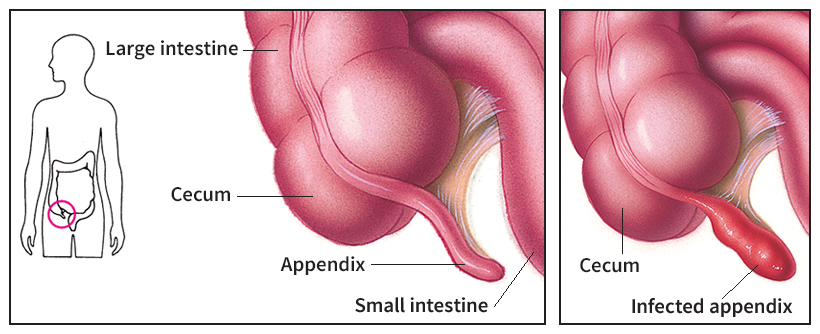Appendicitis << uh `pehn` duh SY tihs >> is an inflammation of the vermiform appendix (see Appendix ). It results from an infection caused by bacteria. The appendix becomes swollen and fills with pus. The pus may be walled off and form an abscess. Or the appendix may break, allowing the infection to spread to surrounding body organs. It may also cause peritonitis, an inflammation of the membrane that lines the abdominal cavity (see Peritonitis ).
Symptoms.
An attack of appendicitis usually begins with pain in the region of the navel. Then it moves to the right lower side of the abdomen. At first, the pain is not constant—it comes and goes. But soon it becomes continuous, and soreness develops over the appendix region. The abdominal muscles tighten, and the patient becomes nauseated and usually has a fever. A blood count shows an increase in white blood cells.

Treatment.
It is very important that no laxatives, such as castor oil, be given to a person with appendicitis. Laxatives should never be given to a person with an abdominal disorder that might be appendicitis. Any such medicines may cause the appendix to rupture, spreading bacteria through the abdomen. The patient should remain quiet. A doctor should be called immediately. The usual treatment for acute appendicitis is surgical removal of the appendix, an operation known as an appendectomy. In mild cases, the inflammation may subside by itself. Some people may have recurrent appendicitis.
